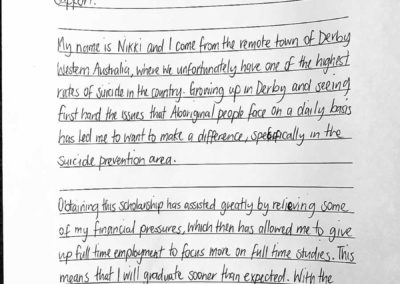Thank you for supporting the Dr Tracy Westerman Aboriginal Psychology Scholarship Program and the inaugural 2020 scholarship recipients.
Your generosity is already having an incredible impact on the individual lives of these 15 talented and motivated students.
Thank you for believing in Dr Tracy Westerman’s vision of developing the next generation of Indigenous psychologists – the individuals who will be able to deliver culturally appropriate services to Indigenous people in our regional and remote communities.
Your generosity is supporting 15 outstanding Indigenous students as they work hard to complete their psychology studies:
2019 Inaugural Recipients
Nikki McKenzie
Taylah Thompson-Patfield
2020 Recipients
Shaun Garlett
Dom Barry
Jodi Jones
Michael Cullen
Myles McKenzie
Tex Garstone
Taylor-Jai Mcalister
Corey Kennedy
Kiera-lee Carroll
Charlotte Sapio
Shannon Mc Neair
Dale Rowland
Anika Gosling
They all have aspirations to follow in Dr Westerman’s footsteps and make a difference in our highest-risk communities.
Having seen first-hand the struggles Indigenous people face, they are all highly motivated to use their educational opportunities to effect change. Our hope is that these students, and the future Dr Tracy Westerman Aboriginal Psychology Scholarship recipients, will be instrumental in addressing the high rates of mental ill health and suicide amongst Indigenous people.
We hope you enjoy reading about these inspiring students. We are sure, like us, you can’t wait to see what incredible things they will be able to achieve for themselves, their families and their communities.
Thank you once again for supporting this important initiative. We look forward to keeping you up to date with the progress of our first scholarship students, as well as sharing information about new recipients.
Watch below to see how our 2020 recipients are doing:
NIKKI MCKENZIE
BACHELOR OF SCIENCE (PSYCHOLOGY)
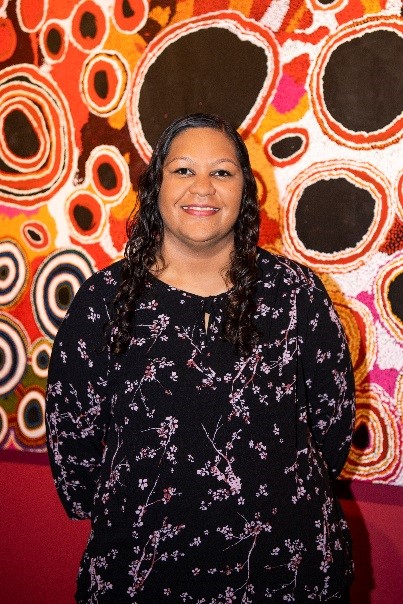
YOUR IMPACT:
Nikki has grown up and lived in Derby, in the Kimberley region, for most of her life. She has ties to Nykina, Jabirr Jabirr and Bardi country.
Nikki has always had aspirations to work in the Aboriginal mental health field and in a remote area.
Nikki is currently studying abroad in Canada and is expected to graduate in 2021.
HER THANK YOU:
TAYLAH THOMPSON-PATFIELD
BACHELOR OF SCIENCE (PSYCHOLOGY)
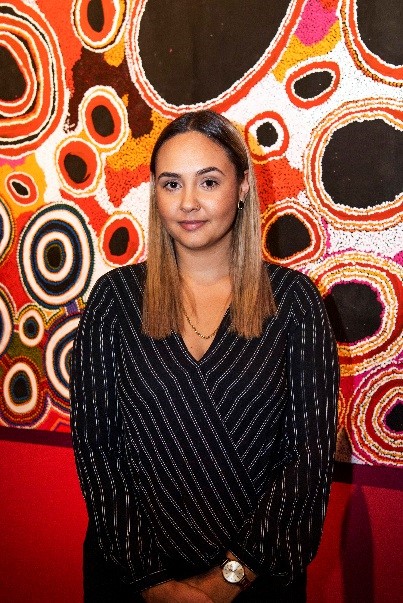
YOUR IMPACT:
Taylah is a passionate psychology student in her third year of study. Taylah resides in Midland, in outer metropolitan Perth, and has ties to Noongar, Yamatji and Thalanji country. While she isn’t studying, she is working part-time at the Department of Child Protection and caring for her two younger brothers.
Taylah strongly believes that there needs to be more people like Dr Tracy Westerman, with the voice, passion and drive to help Aboriginal people heal from past and present trauma.
This is what inspired Taylah to study psychology at Curtin. She is confident that, in the future, she will be able to provide culturally safe and effective health practices to Aboriginal people to improve mental health outcomes.
Taylah is expected to graduate in 2021.
HER THANK YOU:
Dear donors
My name is Taylah Thompson. I am a 25-year-old Noongar Yamatji woman born in Perth, with family connections to Carnarvon and Onslow, WA. I am currently studying a Bachelor of Psychology at Curtin University and have recently commenced my third year of study.
What inspired me to study, particularly a Bachelor of Psychology, was my upbringing which, at times, was difficult. Growing up, it was plagued by poverty, domestic violence, mental illness, substance abuse and social deprivation, causing considerable disruption and damage to mine and my siblings’ development – which still impacts aspects of our lives today and is what led me to pursue a degree in psychology.
I would like you to know that this scholarship not only assisted me and my personal and educational hardships, it has also assisted me to support my family, as I have two younger brothers currently in my care, as we face many daily challenges and barriers that most Aboriginal families face today.
This award relieves the financial pressures of maintaining my car and licence, paying expenses such as outstanding bills, providing food for my family and overcoming daily or unforeseen challenges. It also keeps me determined and motivated to work hard and complete my studies, as it helps me to believe that my current struggles are only temporary, and that all of my hard work will pay off in the long run, as Tracy Westerman is living proof of this – I aspire to follow her lead.
Given my past to current life experiences, my short-term academic and career aspirations would be to complete my studies. My long-term aspirations would be to work with young Aboriginal children or youth at risk who have suffered similar life experiences to that of my family’s. More specifically, I want to try and help Aboriginal people overcome the cycle of generational trauma, crisis and addiction, which tends to plague so many Aboriginal families today.
I am truly humbled and excited to be part of Tracy’s initiative – an initiative that has been long called for amongst Aboriginal people. I would like to thank you for your kind donation towards my studies this year.
I truly appreciate your support, your contribution assisted with my daily hardships, taking off some of my financial pressures so I can focus on my academic development and succeed in my future endeavours.
Without your involvement and generosity, I would struggle to aim high and reach my full potential.
Yours truly,
Taylah Thompson
Shaun Garlett
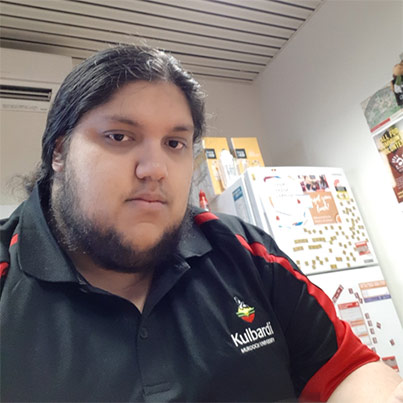
ABOUT ME:
My traditional people is Noongar, Yamatji and Nyiyaparli. My father is a Noongar man from the Wadjuk, Balladong area. My mother is a Yamatji through my grandmother and Nyiyparli through my grandfather.
This scholarship is important to me as it will allow me to become successful in my university life by removing many different types of barriers and assist me within my carer through mentorship within indigenous mental health and suicide prevention. Such barriers can include but are not limited to financial barriers, study barriers and living barriers. In addition to removing such limiting factors I believe it will allow me to accomplish my goals to become a registered clinical psychologist and work within my communities as a specialised indigenous clinical psychologist. To learn and or be mentored from Dr Tracy Westerman would be an amazing opportunity that will allow me to deliver appropriate care to many indigenous communities as I have found throughout my degree it is not appropriate towards indigenous mental health.
Upon completion of my studies my main focus will be suicide prevention and at-risk indigenous people. In addition to this there are certain areas which I would like to focus on such as, Child and Adolescent mental health as this area has grown on me and Men’s mental health as indigenous men are more likely to talk with other men about their mental health. As such I wish to aim for clinical psychology work as a clinical psychologist on graduation.
Dom Barry
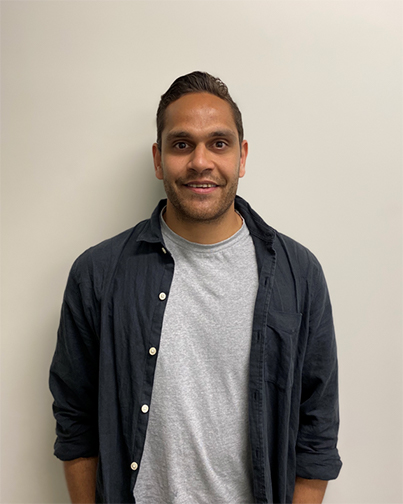
ABOUT ME:
My name is Dom Barry, 26 years old and my traditional community are the Pitjantjatjara and Yankunytjatjara people. This scholarship is important to me because I believe there is a gap between the lived experience of Aboriginal people in remote communities and the policy makers in faraway places.
I believe lived experience and good evidence need to inform decision makers to adopt appropriate measures to better the lives of our people. Only then might we see a reduction in things like domestic violence and suicide, because we may have better access to relevant culturally responsive psychological services from people who understand the complexities of our culture.
I agree with Tracy’s commentary that one of the most tragic and stark injustices of our time is seeing young Indigenous people choose death over life. I want to be a role model for other young Indigenous people from remote communities in Central Australia and beyond. I believe our most vulnerable Indigenous children should have an equal opportunity to thrive.
Also, I am very community minded and future orientated and I believe if young kids and young adults see me engaging and thriving in a field like Psychology, they will begin to believe that they can do it themselves. I want to become a clinical psychologist working with children, families, and Aboriginal men in the mental health space.
A significant goal for me is to work with young men from remote communities and – through early intervention – aim to initiate preventative measures to reduce the incarceration rates, domestic violence rates, sense of hopelessness (anecdotal evidence from close brothers) and a sense of loss of culture among the men in the communities. By becoming a clinical psychologist, I believe I can help the community to resolve some of the important issues we are facing today as a people and subsequently avoid future issues for later generations.
Jodi Jones

ABOUT ME:
My name is Jodi Jones, I am a palawa woman (Tasmanian Aboriginal) proud descendent of Fanny Cochrane-Smith, originating from Flinders Island.
The Tracey Westerman Scholarship is a vital pathway for Indigenous graduates to be involved in evoking positive change in the field of psychology. The scholarship is critical in addressing the needs of the Indigenous communities, through Indigenous psychologists working together with communities.
I am thrilled to be shortlisted for the scholarship, having admired Dr Westerman for several years. Indigenous communities are overrepresented in the justice system at alarming elevating rates, comparative to non-Indigenous people. I hope to be part of the “army” of psychologists that are involved in this highly significant and much-needed movement. I am passionate about social justice and ensuring that our Indigenous people have a voice, are listened to and are heard.
Upon commencement of my degree I intended to work in the area of criminal/forensics, as I have progressed, I am looking towards clinical or children’s and youth mental health field of psychology.
Michael CULLEN
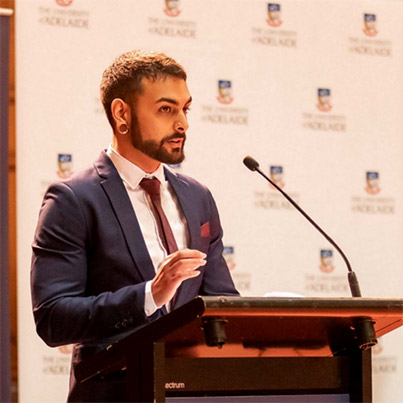
ABOUT ME:
This scholarship not only provides support for future psychologists, it provides awareness and a voice for Indigenous youth who are heavily affected by the lack of services and professionals. There is a continuous rise of youth suicides and this is a stepping-stone towards making a difference in the community.
The area of psychology that I would like to get into is clinical with a backing in developmental and social psychology. The developmental and social aspects of one’s self are important foundations for a healthy life.
Myles McKenzie
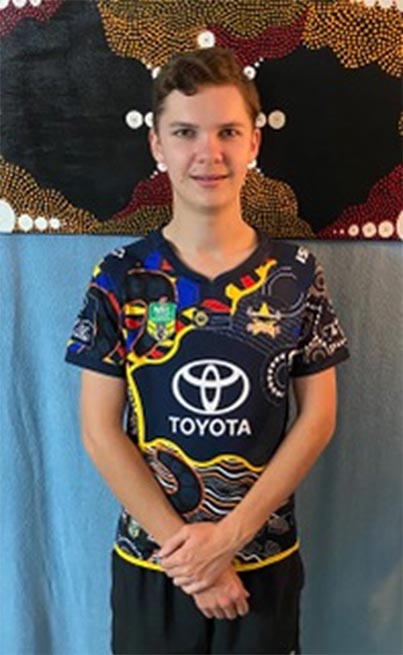
ABOUT ME:
I applied for this scholarship after watching and researching the works and studies of Dr Tracy Westerman. Dr Westerman’s passion for Indigenous mental health and reducing Indigenous suicide coincides with my own drive for increasing mental wellbeing among my Indigenous brothers and sisters and ensuring that we have Indigenous psychologists who understand our cultural and spiritual influences on our mental health. The scholarship would allow me the opportunity to expand my experience in rural and remote communities and continue my studies, whilst also allowing me to research Indigenous youth mental health in these communities.
I am currently completing my second year of my Bachelor of psychology with honours with an expected completion date of November 2022. I then intend on studying my clinical master’s in psychology at James Cook University in Townsville, and doing some of my clinical placement in rural Queensland hospitals such as in Hughenden and Mount Isa. During my master’s degree, I plan on examining Indigenous youth mental health and attempting to determine the effect of western social structure on their mental health. At the completion of my clinical Masters, I intend on travelling around rural and remote Indigenous communities and working as an indigenous psychologist in these areas to treat and assist a variety of Indigenous people in need.
Tex Garstone
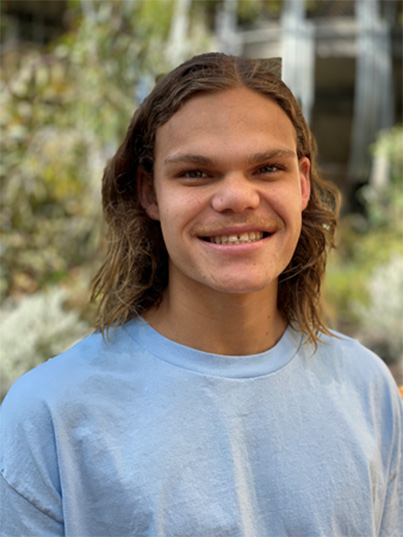
ABOUT ME:
The scholarship is not only important to me because of the financial benefits, which I would be deeply grateful for, But for what the scholarship values and the platform it aims to create. I value the scholarship because it values empowering indigenous youth and making a positive change in our remote indigenous communities. I also value the scholarship because it is a platform which aims to increase the amount of Indigenous psychologist. Due to the fact that there are higher rates of suicide, mental illness and cognitive deficiencies amongst the aboriginal population, there is obviously a gap that needs to be addressed by Aboriginal workers who can relate to these people and them situations. I love the fact that it is trying to change the narrative of the white man helping the helpless black man to Aboriginal people helping and empowering other Aboriginal people. This is why it would be an honour to be a recipient of the scholarship and to be a part of Dr. Westerman’s team of Aboriginal psychologists.
I want to get into cognitive and development psychology because, those that are subject to entrenched disadvantage often have trouble with early childhood development which can then lead to poor handling of stress and development of mental illness. I would then like to use the knowledge that I’ve gained from university, with the help of this scholarship to work alongside the education department in remote areas, specifically the Kimberley to implement strategies within schools that aim to increase indigenous students’ chance of normal cognitive development which could help prevent the development of mental illness in later stages of life. These strategies would also help increase indigenous outcomes in education making it one step closer to closing the gap between non-Indigenous and Aboriginal people.
Taylor-Jai Mcalister
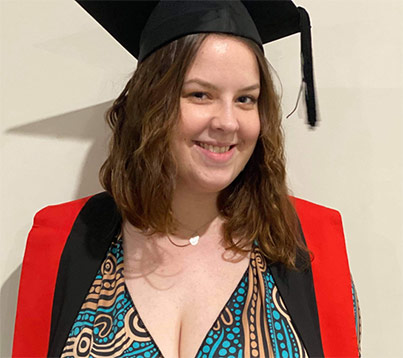
ABOUT ME:
I am currently completing a Master of Clinical Psychology, aiming to work within communities and empower other young Indigenous people to become Clinical Psychologists, too. This scholarship provides people like me with a network of people who are also learning to navigate the psychology system and how to best work with my community.
This opportunity to connect with others who share my vision, as well as the support it would provide in allowing me to focus on my degree, and still engage with community.
Upon graduation, my focus is to work with community, and to be supervised by and work with other Aboriginal people- to really keep me grounded and allow me to learn as much as I can early in my psychology journey.
Corey Kennedy
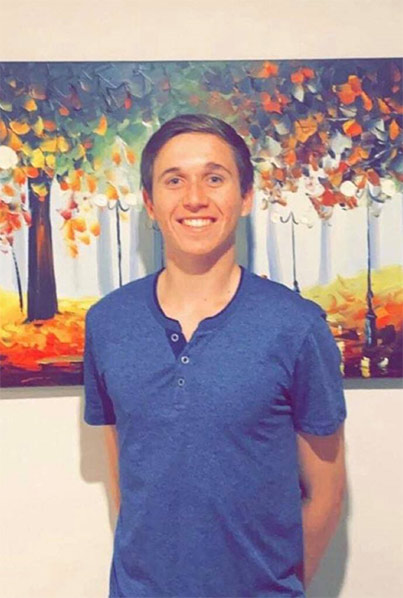
ABOUT ME:
This scholarship is so important to me because it provides me with an opportunity to become financially secure and reap the subsequent benefits that come along with it. The time I would save from not needing to work as much would provide me with additional time to study and become a more competent and skilled psychologist. In addition to this I would have more flexibility throughout the week to juggle my university, family, social, sporting and work commitments. A second reason to why this scholarship is so important to me is that it would act as a step ladder in allowing me to make a greater positive contribution to Indigenous peoples lives. I would achieve this by using the scholarship money to further my study by actively seeking beneficial skills and experiences from opportunities such as but not limited to work experience in remote/rural areas, exchange programs, workshops and conferences.
I intend to focus on Sports psychology upon graduation because I have a passion for sport and feel that it is becoming a more common topic of discussion and concern amongst athletes. In short, sports psychology involves not only assisting athletes with their performance but also with their mental health outside of sport. So far in undergraduate the opportunities to learn specifically about sports psychology has been limited, so instead I have focused on developing a broad range of skills and knowledge in many areas of psychology so that 1) I can become a more complete psychologist and 2) it will leave the door ajar for future potential opportunities in other areas of psychology.
Kiera-lee Carroll
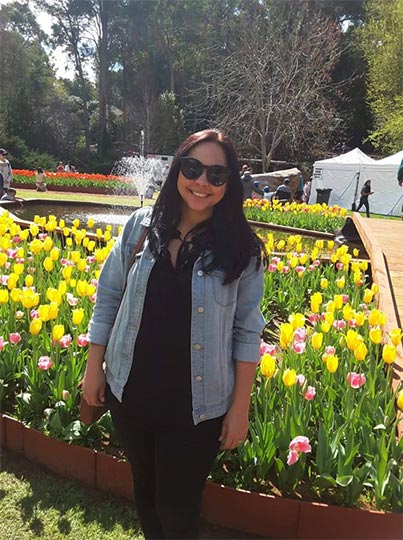
ABOUT ME:
The Dr Tracy Westerman’s Aboriginal Psychology Scholarship Program, offers both support and inspiration to Aboriginal psychology students. Our people call out for access to mental health professionals that understand what it is like growing up Aboriginal in contemporary Australia. This scholarship helps students to imagine a new way of supporting Aboriginal people, by building an army of individuals dedicated to our people, our culture and our future.
Upon graduation and registration I would like to work as a Forensic Psychologist. I currently work in education for the justice department. My time in the prison system has shown me how many of our young Aboriginal people are hopeful for a better life for themselves and their children. I am confident in my ability to achieve my goals and I know that I also have a responsibility to uplift my community and our future generations.
Charlotte Sapio
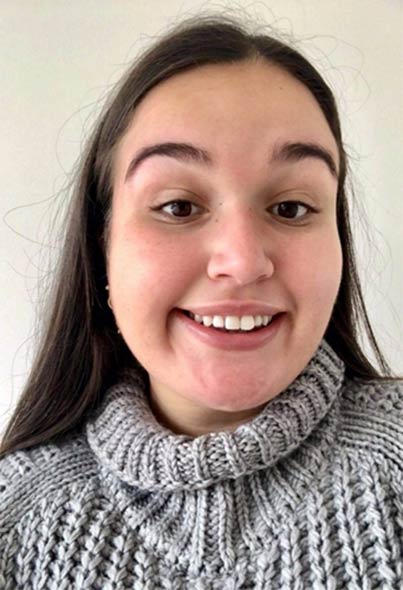
ABOUT ME:
I appreciated that this scholarship has a focus on working with emerging future Aboriginal psychologists and encouraging them to travel to remote and rural communities to provide mental health services. I want to contribute to improving mental health in these areas when I complete my degree. As discussed in my application, this scholarship would firstly provide me with tools to support the completion of my degree and potentially provide access to relevant networks and resources throughout my study. Being awarded the scholarship would allow me to focus primarily on my study with the ability to then reduce my work hours at my current job which supports my living expenses and costs such as private tutoring, IT and textbooks.
I plan to work as a clinical psychologist after finishing my current degree of Psychology Honors and in future a masters and PhD. After the completion of my studies, I wish to travel to remote and rural Indigenous communities to provide mental health support and education. I believe this is so important as I wish to be a part of closing the gap between Indigenous health and non-indigenous health as well as reducing the high prevalence of suicide and incarceration of Aboriginal and Torres Strait Islander peoples.
Shannon Mc Neair
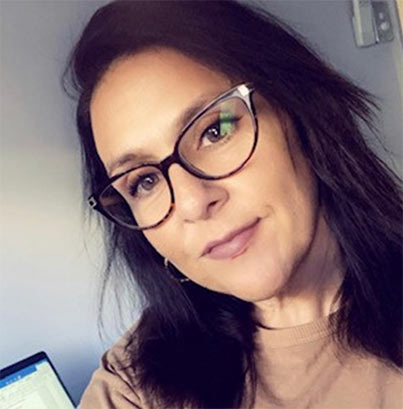
ABOUT ME:
This scholarship is very important to me – there are not enough Aboriginal psychologists, and it is difficult to create traction and change in the discipline of psychology alone, as well as in large systems such as government. We need more Aboriginal psychologists producing research to inform best practice when working with Aboriginal children and families, so we can reduce the number of Aboriginal deaths relating to suicide and the amount of Aboriginal children coming into care.
It is vital that more Aboriginal Psychologists are working directing with Aboriginal children ; doing the assessments and interventions so Aboriginal families are supported given the rates of suicidality in our communities. Given that I work full time, have two children to support and study, a scholarship to support my Masters of Clinical Psychology will support my ongoing placements and financial costs associated with studying. I would like to continue to work with children when I graduate in my current role as district psychologist and progress to Senior Psychology positions to create change that supports reducing the number of Aboriginal children coming into care and dying from suicide.
In my role as district psychologist in the Pilbara I use the Westerman Aboriginal Symptom Checklist for Youth (WASC-Y) and Adults (WASC-A) and I believe these psychometric screening tools have given me ongoing opportunities to incorporate culturally appropriate, valid and reliable screening of Aboriginal children and an opportunity to support young people and Adults to communicate with me directly what they need psycho-socially, and therefore attempt to directly reduce the number of Aboriginal people dying from suicide.
Dale Rowland
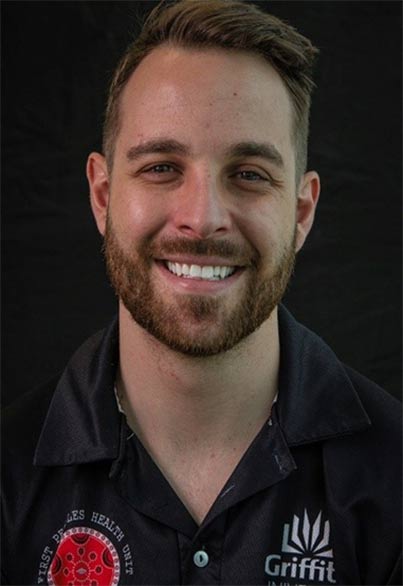
ABOUT ME:
The Dr Tracy Westerman Indigenous Psychology Scholarship will be crucial to my successful completion of the PhD in Clinical Psychology. In addition to creating opportunities to be mentored by The Westerman Jilya institute, it also provides a platform to mentor and inspire others to embark on a journey in Psychology. This degree is by far the most challenging journey I have undertaken, and it continues to challenge me both personally and professionally. In addition to this and numerous other opportunities this scholarship affords, this scholarship will alleviate the financial strain and burden of juggling employment with class attendance, assessments, exams, placements, and progressing my research.
Upon successfully completing the PhD, I plan to practice as a Clinical Psychologist who works with/for the community to improve mental health and wellbeing. I hope to utilize tailored digital mental health technologies to better service and meet the needs of our people. I am passionate about evidence-based practices, trauma informed practice and culture as a protective factor for psychological ill health.
Anika Gosling
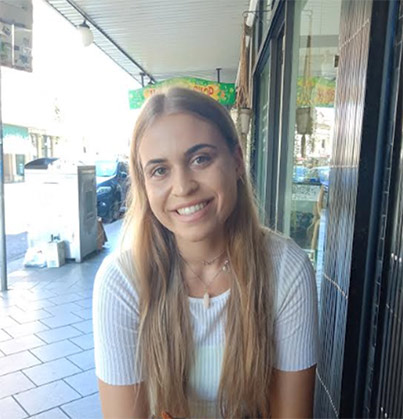
ABOUT ME:
I would be very grateful to receive the Dr Tracy Westerman Scholarship, as I believe in her vision and to be involved in this process would be a huge achievement, incredibly rewarding and humbling. The scholarship will assist me financially and enable me to pay everyday expenses, living expenses, university fees and incidentals. I would be indebted to Dr Tracy Westerman and this would inspire me in my studies, and further assist me in my goals as a School Psychologist. I believe this scholarship is important because it would bring me a step closer in achieving my goal of becoming a School Psychologist.
Upon graduation I hope to become a qualified School Psychologist. I have been inspired to study psychology due to being concerned for the mental health of Aboriginal youth. The wellbeing gap between Aboriginal youth and non-Aboriginal youth is evident at every stage of their development. This is reflected in measures such as infant mortality rates, preparedness for schooling, educational achievement, contact with the justice system and hospitalisation. For children and young people, mental health is profound in its importance – not only because it is the key to a rich enjoyment of childhood and adolescence, but also because it provides the foundation for a resilient and mentally healthy adulthood. I believe that my Aboriginality, understanding and knowledge of culture, and compassionate and positive manner will assist in helping Aboriginal students and families.
Thank you for supporting these incredible young people as they embark on their own journey to make tomorrow better for themselves, their families and their communities.
We hope you have enjoyed learning about their motivations, hopes and aspirations and the inspiration that they continue to draw from Dr Tracy Westerman.
